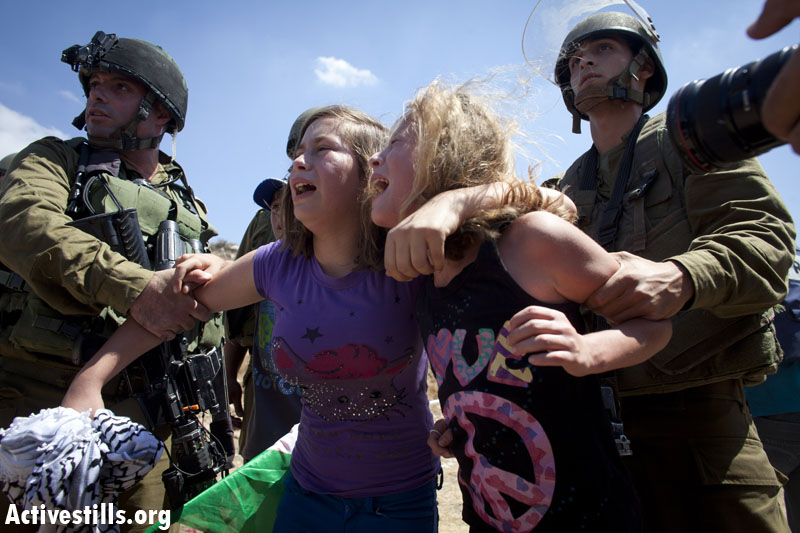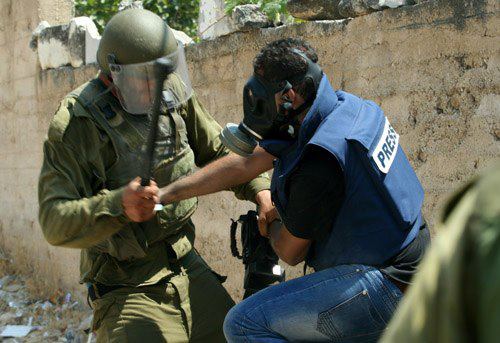Tag: Demonstration
-
Video: Soldiers attack children in Nabi Saleh and forcibly separate them from their detained mother
August 25 2012 | Popular Struggle Coordination Committee, Occupied Palestine Army held six detainees over eight hours, raided houses in the village, injuring several residents and using live ammunition Pictures: see here, here, here, and here During the weekly demonstration in the village of Nabi Saleh, yesterday, Friday, dedicated to support the Palestinian prisoners in Israeli jails, some of the…
-
Israeli military beats and arrests journalists, suppresses Kufr Qaddoum demonstration
By Marshall Pinkerton and Alma Reventos 18 August | International Solidarity Movement, West Bank On Friday, August 17, 5 were injured and 8 arrested during the weekly protest in Kufr Qaddoum. Israeli soldiers fired tear-gas canisters, rubber-coated steel bullets, and beat protesters with wooden sticks. The village experienced an unprecedented amount of violence during the peaceful…
-
Nabi Saleh: “The resistance is for our kids’ future”
By Markus Fitzgerald 15 August 2012 | International Solidarity Movement, West Bank On the evening of July 26, social media lit up with messages from residents of the village Nabi Saleh. “Four army jeeps and around 20 soldiers standing at the entrance” tweeted Manal Tamimi, and later, “for the third day (in a [row]) the…


